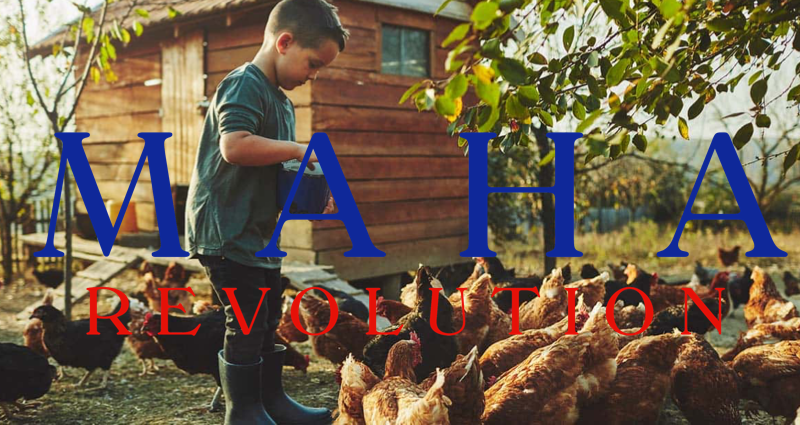The MAHA report, released last week, focuses on outcomes that actually fall within the executive branch’s constitutionally limited powers. While some have argued that increased federal power is justified by the goal of “making America whole again,” the report highlights the ease of corporate takeovers when control is centralized.
Instead, the administration is focusing entirely on partnering with American farmers and ranchers. “We cannot succeed in this movement without the partnership of American farmers,” RFK Jr. said at a press conference to announce the MAHA report.
Because consensus is rare in the agricultural sector, ZeroHedge set out to explore what a farmer-focused partnership might look like for MAHA Agriculture leaders. Surprisingly, we found consensus on key issues, from regulatory reform to mission realignment to consumer choice.
Judith McGeary, executive director of the Farm and Ranch Freedom Alliance (FARFA), tells ZeroHedge that the partnership with American farmers first looks to regulatory reforms.
“We need a fundamental review of government programs – not just eliminating regulations, but carefully redesigning them – to develop regulation that is appropriate at scale and promotes fair and open competition in the marketplace, so that consumers have real choices and access to healthy food.”
McGeary further explains that current regulations, drawn up by monopolies, prevent small producers from entering the market.
“Regulations in almost every food sector – including meat processing, egg grading and produce safety – are designed to be applicable to large, chemical-based and closed-loop producers. And even when small, regenerative producers find a way to comply with the regulations, they are largely kept out of the market by corporate control or by misleading labels and marketing.”
Bill Bullard, R-CALF USA CEO, shares McGeary’s call for regulatory reform.
“We appreciate that this report highlights key issues in our beef supply chain that our government has so far refused to address,” Bullard said. “These issues include excessive corporate influence over national dietary guidelines; a revolving door between government regulators and regulated companies; and the corporatization and consolidation of our beef and beef markets.”
Bullard adds that the partnership with American farmers must include the USDA’s original goal of fighting antitrust and restoring consumer confidence by returning to mandatory country of origin labeling (MCOOL) requirements.
“Our partnership includes a focus on antitrust and enforcement of the Packers and Pastures Act to curb corporatism and consolidation; ending the demonization of beef and recognizing its critically important nutritional role; and reinstating MCOOL, as the place of production and production standards of beef are essential to ensuring safety and wholesomeness,” Bullard said, adding that he hopes Congress can make progress on the next farm bill.
Bullard appeared on Fox Business last week, warning about the continued depletion of rural areas across America.
For Tennessee rancher and agricultural advocate Dustin Kittle, the Farm Credit Administration (FCA) takeover is too close. Kittle, who has dedicated his career to saving family farms, tells ZeroHedge that the partnership must include a realignment of the FCA’s mission.
“The Farm Credit System was originally designed to protect family farms. Now it directs half of its $400 billion loan portfolio into mega loans ($25 million and up) to the usual suspects in big agriculture,” Kittle explains. “In fact, there are Fortune 500 companies that have taken out billions of dollars in loans through the U.S. Farm Credit System at reduced interest rates.”
Kittle goes on to describe the effects.
“If we eliminate the large agricultural megaloans that are draining Farm Credit funding, it would free up $200 billion in loan capital; enough capital to provide $400,000 farm loans to 500,000 family farms; nearly as many farms as the USDA Economic Research Service found in need of financing in its 2023 report.”
Cole Bolton, a rancher and senior vice president at Frontier Bank of Texas, dedicates his time to educating ranchers on proper leverage, the discipline of debt reduction, and building the balance sheet necessary to qualify for a loan.
Bolton tells ZeroHedge that regulatory reforms are needed more than ever.
“Now more than ever, producers need access to liquidity to expand or simply stabilize,” Bolton said. “For too long, ranchers have been forced to borrow, and banking regulations make it difficult for them to obtain VAT credits.”
According to the report cited by Kittle, the United States is losing farms at an alarming rate. 141,733 farms have been lost in the past five years. That’s an average of about 28,347 farms per year—about 77 farms per hour.
Considering that small family farms make up 96-98% of all American farms, it’s easy to see how the industry—which rarely agrees on anything — has been able to find consensus on the nature of the partnership.
Time is of the essence. That’s why ZeroHedge has launched its first farmer-focused partnership with the Beef Initiative, a think tank aimed squarely at farmers. Together, we’re committed to leading by example and creating innovative solutions to direct liquidity directly back into the hands of the companies that produce our food supply.
As monopoly-driven regulations disproportionately burden small players and public funds are prioritized over mega-donor reciprocity, we must look to consumer choice and free markets instead of big government.
At the same time, MAHA farmers welcome the opportunity to partner and unite in calling for regulatory reforms and mission restructuring of executive agencies.
























